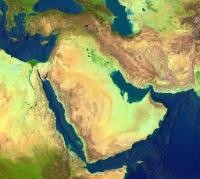While the Bush administration's efforts to contain Iran have found some resonance with the region's Sunni Arab political establishment, a recent survey conducted in six Middle Eastern states reveals that the strategy to galvanize an anti-Iranian coalition has not made an impact on the climate of opinion formed in the Arab street. Pro-Western Sunni Arab regimes, especially Saudi Arabia, have raised concerns about an Iranian arc of influence stretching through Iraq and Syria to southern Lebanon, a development that, ironically, has been partially aided by the U.S.-led invasion of Iraq. But the July-August 2006 war between Israel and Hezbollah opened up cleavages in opinion between the political leadership of Saudi Arabia, Egypt and Jordan and public sentiment in those countries, which was generally sympathetic to Hezbollah. These cleavages have been confirmed by a recent survey of Middle East opinion undertaken by the University of Maryland and Zogby International, which sought views on regional and international issues among 3,850 respondents in Egypt, Jordan, Lebanon, Morocco, Saudi Arabia, and the United Arab Emirates (UAE). Apart from Lebanon, the countries included in the survey are overwhelmingly Sunni Arab.
Middle East Opinion: Iran Fears Aren’t Hitting the Arab Street

